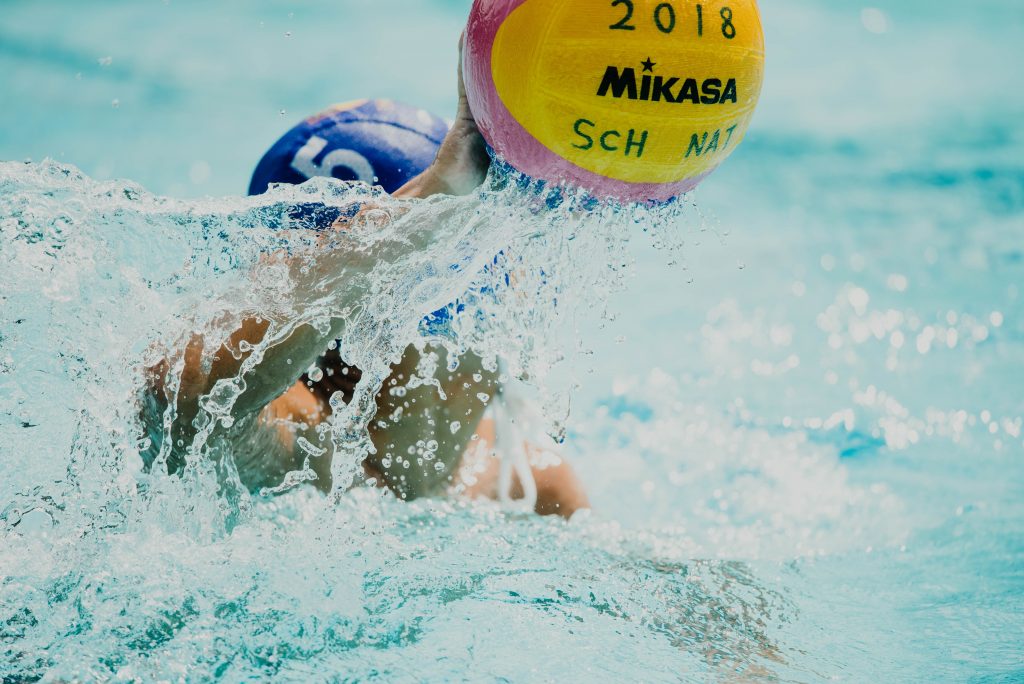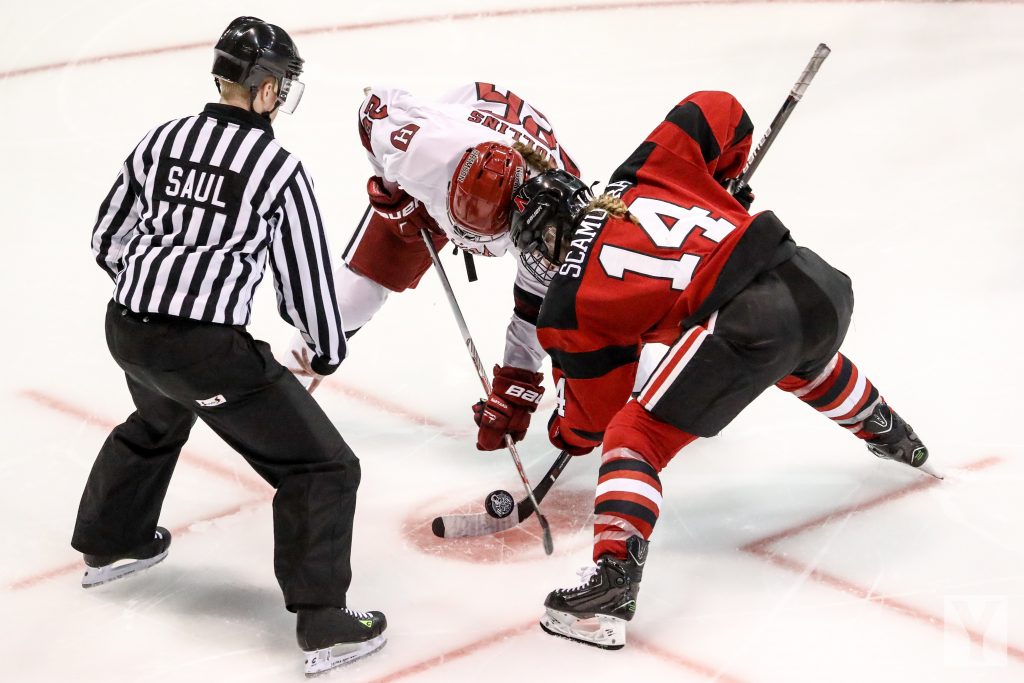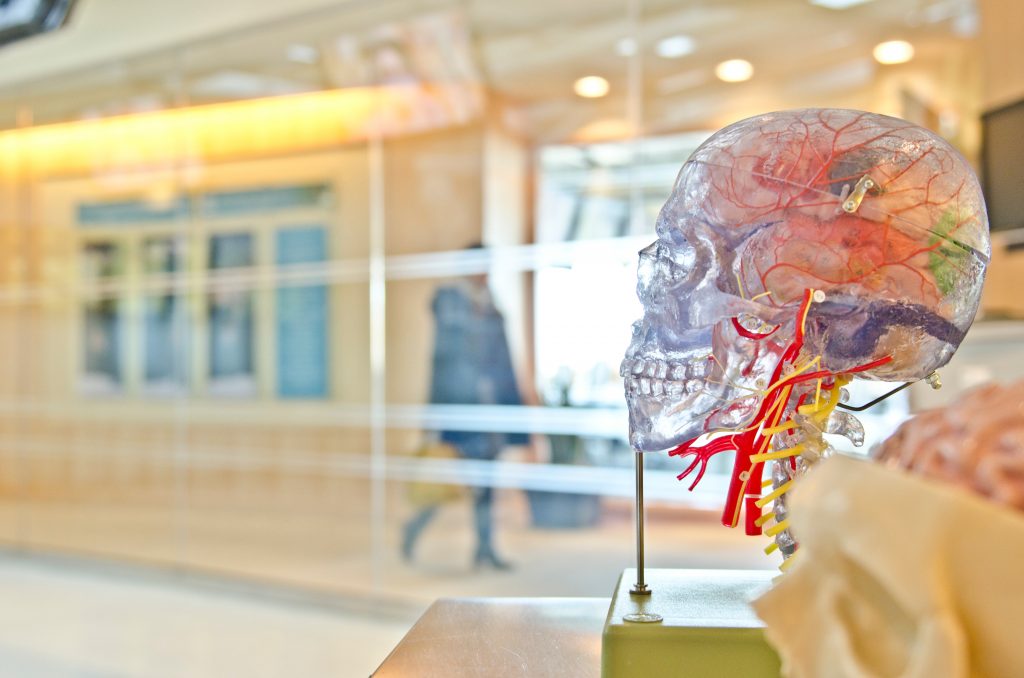Chronic Traumatic Encephalopathy (CTE) in Athletes

Photo by chuttersnap on Unsplash 
Photo by Jerry Yu on Unsplash
A football player getting tackled to the ground by an opponent. A hockey player being bashed into the boards. A soccer player heading the ball into the goal. All of these scenarios could possibly lead to the athlete sustaining a concussion. A concussion is a mild traumatic brain injury caused by rapid acceleration or deceleration that causes the brain to rock against the inner walls of the skull. Concussions can happen to anyone however they are most prominent in the athlete population. Symptoms of a concussion can have effects on the physical and psychological states of an athlete which in turn can affect different portions of their life.

Photo by Paweł Czerwiński on Unsplash 
Photo by jesse orrico on Unsplash
Diagnosis of a concussion is typically based on the nature of the incident and the presence of specific symptoms. This injury is unlike the typical physical and visual injury some athletes incur and it is invisible to the naked eye. With rapid acceleration or deceleration that causes the brain to hit the inner walls of the skull, there is potential for tearing of blood vessels, bruising or swelling of the brain. These injuries to the brain create a multitude of symptoms for an athlete. Typical signs and symptoms of a concussion are headache, temporary loss of consciousness, confusion, amnesia surrounding the incident in which the concussion was sustained, dizziness, vomiting, fatigue, delayed response to questions, slurred speech, amongst many other signs and symptoms as well.
When recovering from a concussion, athletes are only cleared for return to learn and return to play when their symptoms have completely subsided. If an athlete returns to learn or play before there is a chance for the individual to suffer from Second Impact Syndrome (SIS) if a second concussion is sustained before the first concussion is healed. SIS can diffuse the cerebral swelling within the brain, brain herniation, or even death can occur. Even if an athlete heals completely from the first concussion, it makes them more susceptible to incur more concussions later on in their athletic career.
With the risk of being more susceptible to sustaining multiple concussions throughout the rest of their athletic career, athletes run the risk of having long-term, lifelong symptoms. One major long-term, even fatal, danger of multiple concussions is an athlete developing Chronic Traumatic Encephalopathy (CTE). CTE is a neurodegenerative disease that is caused by an individual accumulating numerous head injuries. The only way to diagnose an athlete with CTE though is post-mortem. However, from cases such as Mike Webster or Junior Seau, two famous NFL stars who passed away due to CTE, it gives an idea of what the symptomology may look like. Typically, an athlete with CTE may express feelings of depression, paranoia, agitation, impaired judgement, aggressive behavior and even suicidal behavior as well, as these two athletes did. These symptoms, connected with the symptoms of your basic concussion, also lead into the psychological emotional aspect of these head injuries, how an athlete feels and what experiences they have through recovering from the injury.

A concussion being an “invisible injury” means that just by looking at an athlete you would not know anything is wrong with them. It takes some digging to figure out if an athlete has received a concussion, but once it has been determined they are taken out from all activities. As an athlete, these individuals thrive off of comradery and teamwork. Having a concussion prevents them from practicing, playing, and engaging with their team, the sources of comradery and teamwork they thrive off of. Their teammates or coaches may not understand what they are going through and experiencing during this process either since the injury is not visible like a broken arm. This can create feelings of isolation which can lead to feelings of depression if the recovery process takes longer than average. Concussions also create cognitive impairments, such as memory, slowing of the cognitive processes, or concentration difficulties. These symptoms may create feelings of frustration or anger within an athlete because they may not be remembering little things such as a passing pattern or when an assignment is due.
There has been little research on the experiences of athletes during their recovery from a concussion. It is pivotal that more is done in order to better understand the effects of concussions on an athlete and the emotional aspects of recovery as well. Luckily, CBU’s Sport, Performance, and Exercise Psychology (SPEP) lab is currently working on adding to the research. In researching the experiences of NCAA athletes with one or multiple concussions, the research team hopes to provide the public a better understanding of the experiences of these elite athletes and how their concussion(s) affected their athletic career, academics, personal relationships, and quality of life.
Have you ever experienced the effects of a concussion or do you know someone who has? Let us know what that was like–or let us know what you found interesting above–in the comments below. All CBU student comments are eligible for a raffle giveaway within one week of posting!

Jocelyn Schwegler, M.S. is an alumni of the CBU women’s water polo team, researcher and graduate of CBU’s Sport and Performance Psychology program. She loves studying the effects of concussions and CTE in athletes and also helping athletes and teams overcome mental barriers. When not researching or studying, she loves swimming, playing water polo, and making trips to the beach!
7 Comments
Knowing that a concussion can have long term effects to the psychological and physical conditions of an athlete, I was not aware that a severe concussion could possibly lead to depression. A few major reasons why we need Sports Psychology is to improve mental skills for enhanced performance, and to potentially prevent further injury. The blog states, “…to better understand the effects of concussions on an athlete and the emotional aspects of recovery.” I also think it’s crucial to bring awareness to society about the “emotional aspects of recovery” because if we have loved ones affected by traumatic brain injuries, we would need this set of knowledge to further our responses to those effected with concussions. I found this article to be interesting because I didn’t know that a concussion could have an effect on the emotional state of an individual.
Thank you for your thoughts and on this article.
Wow, what an informative blog about CTE that provides so much valuable information about the topic of Concussions. Not being an athlete myself, I was unaware of the severity of concussions occurring in athletes. I have heard of athletes sufferings from depression and anxiety after their career though I did not realize the possible cause of that being from multiple concussions affecting their mind. This topic of research seems very important for other athletes or those affected by CTE to read up on and contribute to the growing cause. Great post, with important information.
Glad you found it useful–serious stuff!
This was incredibly interesting to read and also very informative of how athletics may have a lasting impact on those who are participants. I have been an athlete in the past, and for that reason I was somewhat in the know in regards to concussions, but I feel that it is explained more detailed in this blog. I was not aware that depression, anxiety, and other debilitating mental disorders could be due to one or more concussions. So often there is talk of how common concussions are among professional and amature athletes throughout their careers but very rarely to we hear discussion based on the long term mental effects that are derived from the physical injury. I found this to be such a great read and look forward to learning more about this topic!
Emma, I am glad that you enjoyed the article, and found it to be an informative and an interesting read.
I had never thought about the implications and the social pressures that could be felt by athletes due to the “invisible” nature of the concussion. this post brings that point in in an interesting light, that they athletes may become depressed or alienated by other teammates because there is no physical injury that can be observed. Hopefully soon we will have a better understanding of concussions, treatment and possible ways to prevent concussions in athletes while still preserving the nature of sports and sportsmanship .